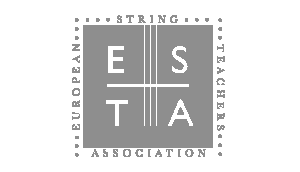Mindfulness and Meditation
for Musicians
What People are Saying.....
We are very grateful to Ruth for guiding us, and for providing a range of techniques that encourage our pupils to be mindful and engaged with their daily musical and non-musical activities.'
Marco Galvani, Deputy Head of Music, Yehudi Menuhin School
Ruth and Lucy model huge compassion, generosity and understanding as they help musicians like me start to heal from decades of stage fright, physical tension and crippling perfectionism. Their holistic approach encompasses gentle breath and body work as well as beautiful meditations and poetry gleaned from Mindfulness and Buddhist traditions, all of which is gently directed towards how we perceive ourselves as musicians per se but also in relation to our particular instrument. By the end of the weekend, I felt as though I’d had a whole person re-boot, with much to take away and explore: highly recommend!
Participant, Mindfulness for Musicians at Benslow Music
An extremely valuable opportunity to step back, reflect holistically on who we are in relation to making and sharing music and mine the rich depths of mindfulness approaches for ways of being more present, authentic and open-hearted musicians.
Participant, Mindfulness for Musicians at Benslow Music
Transformative and very healing.
Participant, Mindfulness for Musicians at Benslow Music
This course offered a uniquely holistic approach to music-making. It was the perfect mix of practical and psychological support, covering many things that aren't talked about in music institutions and really should be!
Participant, Mindfulness for Musicians at Benslow Music
I witnessed such an undoing of the damage we were all suffering from.
Participant, Mindfulness for Musicians at Benslow Music
This was such a well-targeted course that I noticed several attendees, who had arrived on Friday looking careworn, anxious, suffering from performance nerves and in some cases considering giving up playing, were so transformed by Sunday that they looked much better in themselves and were hurrying home to put Lucy and Ruth's guidance into practice.
Participant on Mindfulness for Musicians at Benslow Music
Would you like to find spaciousness on stage but not space out? Find stability without closing down? Enjoy the flow, as you perform, between self and world, performer and audience? Would you like to take your seat – easy, safe, open and free of judgement - amidst it all, in this unique moment?
What is holding you back from joy?
What is holding you back from joy?
What is Mindfulness?
When I was preparing for my graduate recital at SUNY Stony Brook, New York, at the age of 29, I set out my studio as I wanted it to be found after my death, so convinced was I that I would not survive the experience. Now, I love nothing more than being on stage and sharing the music I love, wherever, in front of whomever, and in all my glorious imperfection! I still cannot quite believe that I went from such a terrifying experience of performance to one of such joy, and I truly believe that this journey is, in large part, due to the power of mindfulness.
John Kabat Zinn describes mindfulness as:
"Moment-to-moment, non-judgmental awareness, cultivated by paying attention in a specific way, that is, in the present moment, and as non-reactively, as non-judgmentally, and as openheartedly as possible"
As musicians, it is our privilege to have a body-heart-mind practice rooted in the present. Unlike other art forms, music unfolds moment by moment. We convey it through the instrument that is our miraculous body. We are committed to a daily practice that involves deep listening. We make music because we want to connect from the heart with ourselves and with one another. In many ways, we are already mindfulness practitioners. And, yet, the world of music performance and education is filled with self-loathing, over control, fear, competition, numbness and tension. When we walk on stage, completely fragmented, we are urged to think of the audience naked or imagine ourselves as a super hero in order to boost ourselves up and put ‘them’ down …..
"Moment-to-moment, non-judgmental awareness, cultivated by paying attention in a specific way, that is, in the present moment, and as non-reactively, as non-judgmentally, and as openheartedly as possible"
As musicians, it is our privilege to have a body-heart-mind practice rooted in the present. Unlike other art forms, music unfolds moment by moment. We convey it through the instrument that is our miraculous body. We are committed to a daily practice that involves deep listening. We make music because we want to connect from the heart with ourselves and with one another. In many ways, we are already mindfulness practitioners. And, yet, the world of music performance and education is filled with self-loathing, over control, fear, competition, numbness and tension. When we walk on stage, completely fragmented, we are urged to think of the audience naked or imagine ourselves as a super hero in order to boost ourselves up and put ‘them’ down …..
How can mindfulness help me as a musician?
Contrary to what the name might suggest, the practice of mindfulness is not something that takes place in the head. It is deeply rooted in our physical experience and is infused with kindness. It teaches us stability and strength and gives us the courage to express ourselves and take risks. It connects us to our shared humanity and bridges the gap between performer and audience.
The regular practice of mindfulness promotes simplicity, spontaneity, spaciousness, connection, joy and peace. For musicians specifically it can help us:
Listen to our body rather than bossing it around
Become grounded and therefore feel safe wherever we are
Experience the breath as an ever-present anchor
Rediscover a sense of playfulness as we let go of perfection
Differentiate between helpful and unhelpful thoughts in practice and performance
Remember our common humanity on stage and in rehearsal
Create the mental space to listen deeply and the physical space to let go
Unhook from the drama of our story
Welcome emotions with self-compassion
Reconnect with our joy
The regular practice of mindfulness promotes simplicity, spontaneity, spaciousness, connection, joy and peace. For musicians specifically it can help us:
Listen to our body rather than bossing it around
Become grounded and therefore feel safe wherever we are
Experience the breath as an ever-present anchor
Rediscover a sense of playfulness as we let go of perfection
Differentiate between helpful and unhelpful thoughts in practice and performance
Remember our common humanity on stage and in rehearsal
Create the mental space to listen deeply and the physical space to let go
Unhook from the drama of our story
Welcome emotions with self-compassion
Reconnect with our joy
What is the difference between mindfulness and meditation?
‘Mindfulness meditation’ is a formal practice which can be done lying down, sitting or walking. A meditation practice can last, typically, anywhere from ten to sixty minutes. There are many meditation practices, such as:
Mindfulness of breath
Mindfulness of the body
Mindfulness of thoughts
Mindfulness of emotions
Mindfulness of ambient sound
There are also the ‘heart practices’, which can be particularly helpful to musicians suffering from stage fright and wishing to re-orient their heart in practice and performance. These include meditations on loving kindness, compassion, gratitude and forgiveness, all for self and others.
‘Mindfulness’ is informal and is the simple act of paying attention to that which is unfolding in the present moment. It can be practiced any time, anywhere. Playing an instrument is a perfect way to practice mindfulness, as is washing up the dishes, putting your child to bed or sitting in traffic. Mindfulness is supported by the practice of meditation, just as a musical performance is supported by practice.
Mindfulness of breath
Mindfulness of the body
Mindfulness of thoughts
Mindfulness of emotions
Mindfulness of ambient sound
There are also the ‘heart practices’, which can be particularly helpful to musicians suffering from stage fright and wishing to re-orient their heart in practice and performance. These include meditations on loving kindness, compassion, gratitude and forgiveness, all for self and others.
‘Mindfulness’ is informal and is the simple act of paying attention to that which is unfolding in the present moment. It can be practiced any time, anywhere. Playing an instrument is a perfect way to practice mindfulness, as is washing up the dishes, putting your child to bed or sitting in traffic. Mindfulness is supported by the practice of meditation, just as a musical performance is supported by practice.
Where does mindfulness come from?
Meditation is a practice which has forms in many cultures and religions. The mindfulness meditation I practice and teach has its roots in the Buddhist traditions of Thailand, Burma, and Sri Lanka, and is secular or non religious. Called Insight or Vipassana meditation, these practices were brought over to the West in the 1960’s by Joseph Goldstein, Jack Kornfield and Sharon Salzberg, the three of whom founded the Insight Meditation Centre in Massachussets and the Spirit Rock Centre in California. My training is through the Mindfulness Meditation Teacher’s Certification Program and my teachers are Jack Kornfield and Tara Brach.
Mindfulness sessions with Ruth brought joy back into playing the cello and making music. I will be eternally grateful to her for this.
Astrid, student, Royal College of Music

Practice Peace
Pass it on
Pass it on
Alice Walker





